RECENT ARTICLES

The US Navy Put Cameras on Dolphins And The Footage Is Revealing
For a scientific study published last year, the US Navy strapped cameras to its dolphins, which are trained to help identify undersea mines and protect some of America's nuclear stockpile, then gave them free rein to hunt in San Diego Bay. The clever marine mammals did not disappoint, offering up exciting chases and even targeting venomous sea snakes to the surprise of the researchers. For such popular, well-known animals, there are still so many basic things we don't yet know about these highly social and often gross cetaceans, like precisely how they typically feed. Researchers broadly...…For a scientific study published last year, the US Navy strapped cameras to its dolphins, which are trained to help identify undersea mines and protect some of America's nuclear stockpile, then gave them free rein to hunt in San Diego Bay. The clever marine mammals did not disappoint, offering up exciting chases and even targeting venomous sea snakes to the surprise of the researchers. For such popular, well-known animals, there are still so many basic things we don't yet know about these highly social and often gross cetaceans, like precisely how they typically feed. Researchers broadly...WW…
Report Finds 76 Solutions Available Right Now to Slow Down Climate Change
We have all the solutions we need to avoid catastrophic warming, right now, claims a new report by Project Drawdown. And, not only are they easy to implement, they're far cheaper than doing nothing. is a comprehensive analysis of the currently available solutions to the climate crisis, based on the work of scientists and researchers around the world, across many sectors, from finance to climate science.The aim of the nonprofit is to guide us all towards a future where the greenhouse gases in the atmosphere stop climbing and start to decline - the moment they refer to as 'drawdown'. That...…We have all the solutions we need to avoid catastrophic warming, right now, claims a new report by Project Drawdown. And, not only are they easy to implement, they're far cheaper than doing nothing. is a comprehensive analysis of the currently available solutions to the climate crisis, based on the work of scientists and researchers around the world, across many sectors, from finance to climate science.The aim of the nonprofit is to guide us all towards a future where the greenhouse gases in the atmosphere stop climbing and start to decline - the moment they refer to as 'drawdown'. That...WW…

Sunlight Inactivates Coronavirus 8 Times Faster Than Predicted. We Need to Know Why
A team of scientists is calling for greater research into how sunlight inactivates after realizing there's a glaring discrepancy between the most recent theory and experimental results.UC Santa Barbara mechanical engineer Paolo Luzzatto-Fegiz and colleagues noticed the was inactivated as much as eight times faster in experiments than the most recent theoretical model predicted."The theory assumes that inactivation works by having UVB hit the RNA of the virus, damaging it," Luzzatto-Fegiz.But the discrepancy suggests there's something more going on than that, and figuring out what this is...…A team of scientists is calling for greater research into how sunlight inactivates after realizing there's a glaring discrepancy between the most recent theory and experimental results.UC Santa Barbara mechanical engineer Paolo Luzzatto-Fegiz and colleagues noticed the was inactivated as much as eight times faster in experiments than the most recent theoretical model predicted."The theory assumes that inactivation works by having UVB hit the RNA of the virus, damaging it," Luzzatto-Fegiz.But the discrepancy suggests there's something more going on than that, and figuring out what this is...WW…
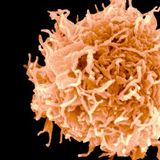
Scientists Find a Natural Protein That Stops Allergies And Autoimmune Conditions
For the , overactive, or downright abusive immune systems, it can feel like you're constantly fighting your own physical self.From incessant allergies to life-threatening anaphylaxis and debilitating autoimmune disease, the system that's supposed to be protecting us can be problematic when it goes wrong. Now, we might be closer to fixing these issues in an entirely new way.Using transgenic mice and cultures of cells taken from human tonsils, researchers have now found evidence of how our bodies might defend against the mistakes that result in conditions such as asthma, food allergies, and...…For the , overactive, or downright abusive immune systems, it can feel like you're constantly fighting your own physical self.From incessant allergies to life-threatening anaphylaxis and debilitating autoimmune disease, the system that's supposed to be protecting us can be problematic when it goes wrong. Now, we might be closer to fixing these issues in an entirely new way.Using transgenic mice and cultures of cells taken from human tonsils, researchers have now found evidence of how our bodies might defend against the mistakes that result in conditions such as asthma, food allergies, and...WW…
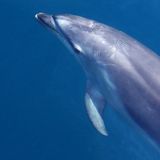
Decades After The Deepwater Horizon Oil Spill, Local Dolphins Are Still Suffering
An oil rig explosion off the coast of Louisiana killed eleven workers on 20 April 2010. The world then watched helplessly as BP's oil gushed out into the Gulf of Mexico for 87 days, killing untold .Dolphins that survived one of the worst environmental disasters ever, still appear to be suffering the effects over a decade later.Comparing populations of (Tursiops truncatus) of Barataria Bay in Louisiana that live within the area of oil exposure to populations from Sarasota Bay in Florida, which haven't been exposed to serious pollution, researchers have found there are still troubling health...…An oil rig explosion off the coast of Louisiana killed eleven workers on 20 April 2010. The world then watched helplessly as BP's oil gushed out into the Gulf of Mexico for 87 days, killing untold .Dolphins that survived one of the worst environmental disasters ever, still appear to be suffering the effects over a decade later.Comparing populations of (Tursiops truncatus) of Barataria Bay in Louisiana that live within the area of oil exposure to populations from Sarasota Bay in Florida, which haven't been exposed to serious pollution, researchers have found there are still troubling health...WW…
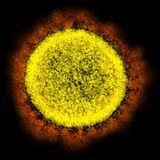
Here's How Climate Change May Have Played a Role in The Emergence of COVID-19
If last year's fueled megafires and the global have taught us anything, it's how interconnected we all are with each other and . Now, we have some early hints that both climate change and the cause of the pandemic may also be intertwined – through bats.Bats have a notorious ability to . While their have been a blessing for them – allowing these airborne mammals to thrive around the world – it's a curse for the rest of us, as they carry these with them wherever they go.Now, a new study found that as the climate has warmed over the last century, the increase of sunlight, carbon dioxide, and...…If last year's fueled megafires and the global have taught us anything, it's how interconnected we all are with each other and . Now, we have some early hints that both climate change and the cause of the pandemic may also be intertwined – through bats.Bats have a notorious ability to . While their have been a blessing for them – allowing these airborne mammals to thrive around the world – it's a curse for the rest of us, as they carry these with them wherever they go.Now, a new study found that as the climate has warmed over the last century, the increase of sunlight, carbon dioxide, and...WW…
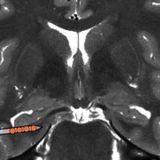
How Our Brains Track Other People's Location Is Weirdly Consistent Between Brains
When navigating a space, it turns out human brains form eerily similar spatial-awareness brain waves. Scientists have discovered this after devising a method to scan our brains during free movements, as opposed to lying still in a scanner."Our results imply that our brains create a universal signature to put ourselves in someone else's shoes," neurosurgeon Nanthia Suthana from the University of California, Los Angeles.Previous revealed low-frequency brain waves help rodents keep track of their position when exploring a new place – by defining a place's boundaries. Similar boundary-defining...…When navigating a space, it turns out human brains form eerily similar spatial-awareness brain waves. Scientists have discovered this after devising a method to scan our brains during free movements, as opposed to lying still in a scanner."Our results imply that our brains create a universal signature to put ourselves in someone else's shoes," neurosurgeon Nanthia Suthana from the University of California, Los Angeles.Previous revealed low-frequency brain waves help rodents keep track of their position when exploring a new place – by defining a place's boundaries. Similar boundary-defining...WW…
Researchers Synthesise a Psychedelic That Could Treat Depression Without Hallucinations
Recently advances have shown that psychedelics have for treating mental health conditions such as addiction, anxiety, and . But psychedelics can come with serious side effects, like cardiac toxicity and their infamous hallucinations."Psychedelics are some of the most powerful drugs we know of that affect the brain," chemist David Olson from University of California. "It's unbelievable how little we know about them."So University of California neuroscientist Lindsay Cameron, Olsen and colleagues decided to take a closer look and see if they could mess with a psychedelic compound in a way...…Recently advances have shown that psychedelics have for treating mental health conditions such as addiction, anxiety, and . But psychedelics can come with serious side effects, like cardiac toxicity and their infamous hallucinations."Psychedelics are some of the most powerful drugs we know of that affect the brain," chemist David Olson from University of California. "It's unbelievable how little we know about them."So University of California neuroscientist Lindsay Cameron, Olsen and colleagues decided to take a closer look and see if they could mess with a psychedelic compound in a way...WW…

Coronavirus Shows You May Not Be as Good at Detecting Misinformation as You Think
Most of us believe at detecting misinformation. This, of course, is a statistical impossibility – one that the has well and truly put to the test.As case numbers surge in the US, bringing a devastating wave of over 2,000 deaths per day, physicians and other health experts plead with citizens to heed public health advice. The problem is, some people still think the pandemic is a hoax."You go to different parts of the country, and even when the outbreak is clear and hospitals are on the verge of being overrun, there are a substantial proportion of the people who still think that this is not...…Most of us believe at detecting misinformation. This, of course, is a statistical impossibility – one that the has well and truly put to the test.As case numbers surge in the US, bringing a devastating wave of over 2,000 deaths per day, physicians and other health experts plead with citizens to heed public health advice. The problem is, some people still think the pandemic is a hoax."You go to different parts of the country, and even when the outbreak is clear and hospitals are on the verge of being overrun, there are a substantial proportion of the people who still think that this is not...WW…
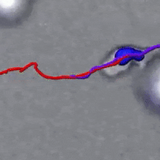
Eerie Footage Captures Human Immune Cells Digging a Tunnel Through Tissue
When a pathogen attacks your cells, your body calls in the cavalry. But how exactly do immune components, such as white blood cells, make it through bodily tissues to get to the invasion? In new experiments, researchers have demonstrated how a type of white blood cell, a cytotoxic T lymphocyte (CTL), is able to dig tunnels through tissue like a snowplow clearing the way for emergency vehicles. And they captured it on camera.Here you can see red-stained CTLs nudging and pawing a tunnel through green-stained collagen fibres, under .CTLs, also known as killer T cells, destroy infected,...…When a pathogen attacks your cells, your body calls in the cavalry. But how exactly do immune components, such as white blood cells, make it through bodily tissues to get to the invasion? In new experiments, researchers have demonstrated how a type of white blood cell, a cytotoxic T lymphocyte (CTL), is able to dig tunnels through tissue like a snowplow clearing the way for emergency vehicles. And they captured it on camera.Here you can see red-stained CTLs nudging and pawing a tunnel through green-stained collagen fibres, under .CTLs, also known as killer T cells, destroy infected,...WW…